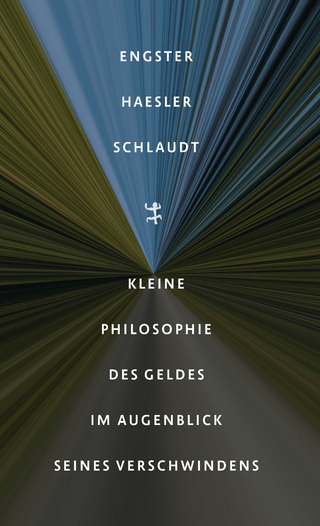
Everyone Flows
A Process Philosophy of Human Life
Seiten
2025
Oxford University Press (Verlag)
978-0-19-896664-7 (ISBN)
Oxford University Press (Verlag)
978-0-19-896664-7 (ISBN)
- Noch nicht erschienen (ca. März 2025)
- Versandkostenfrei innerhalb Deutschlands
- Auch auf Rechnung
- Verfügbarkeit in der Filiale vor Ort prüfen
- Artikel merken
Everyone Flows provides novel ways of thinking about personal identity and the boundaries between stages of a life, and hence illuminates topics such as pregnancy and life extension.
Everyone Flows starts with an ancient and fundamental philosophical question: whether we live in a world of things, stable, autonomous, and with sharp boundaries, or a world of processes in flux, in which stabilities are only transient and processes are inextricably intertwined with one another.
The first three chapters of the book make a forceful argument for the latter view, especially as applied to living beings. Special attention is given to organisms and lineages as processes, the latter being the processes in which evolution occurs. Lineages generate organisms, but organisms compose lineages, illustrating the deep hierarchical interconnections of the world of process. The interconnectedness of life is amplified with an extended consideration of the omnipresence of symbiosis, and some reflections on the processual character of the pregnant mammal.
The final three chapters of the book apply the processual view of nature to problems more specific to the human. A starting point here is the uniqueness of the human lineage, in respect of its sociality and behavioural plasticity, which together enable a unique division of labour, and also in respect of the extent and complexity of the niche that humans have constructed for their occupation. It is shown that the processual perspective on the human organism and lineage offers surprising and radical insights into topics including the nature of personal identity, the possibility of indefinite life extension, human nature, human classifications (including those provided by race and gender), and freedom of the will.
Everyone Flows starts with an ancient and fundamental philosophical question: whether we live in a world of things, stable, autonomous, and with sharp boundaries, or a world of processes in flux, in which stabilities are only transient and processes are inextricably intertwined with one another.
The first three chapters of the book make a forceful argument for the latter view, especially as applied to living beings. Special attention is given to organisms and lineages as processes, the latter being the processes in which evolution occurs. Lineages generate organisms, but organisms compose lineages, illustrating the deep hierarchical interconnections of the world of process. The interconnectedness of life is amplified with an extended consideration of the omnipresence of symbiosis, and some reflections on the processual character of the pregnant mammal.
The final three chapters of the book apply the processual view of nature to problems more specific to the human. A starting point here is the uniqueness of the human lineage, in respect of its sociality and behavioural plasticity, which together enable a unique division of labour, and also in respect of the extent and complexity of the niche that humans have constructed for their occupation. It is shown that the processual perspective on the human organism and lineage offers surprising and radical insights into topics including the nature of personal identity, the possibility of indefinite life extension, human nature, human classifications (including those provided by race and gender), and freedom of the will.
John Dupré is Professor of the Philosophy of Science at the University of Exeter and Consulting Director of Egenis at The Centre for the Study of Life Sciences, which he founded in 2002. He received a PhD from Cambridge in 1981, and subsequently worked at Oxford, Stanford, and Birkbeck College, London before moving to Exeter. Dupré has served as President of the British Society for the Philosophy of Science and the Philosophy of Science Association. He is a Fellow of the American Association for the Advancement of Science and the American Academy of Arts and Sciences, and a Member of the American Philosophical Society.
| Erscheint lt. Verlag | 20.3.2025 |
|---|---|
| Verlagsort | Oxford |
| Sprache | englisch |
| Maße | 138 x 216 mm |
| Themenwelt | Geisteswissenschaften ► Philosophie ► Metaphysik / Ontologie |
| Naturwissenschaften ► Biologie | |
| ISBN-10 | 0-19-896664-4 / 0198966644 |
| ISBN-13 | 978-0-19-896664-7 / 9780198966647 |
| Zustand | Neuware |
| Haben Sie eine Frage zum Produkt? |
Mehr entdecken
aus dem Bereich
aus dem Bereich
Buch | Hardcover (2024)
Matthes & Seitz (Verlag)
28,00 €


